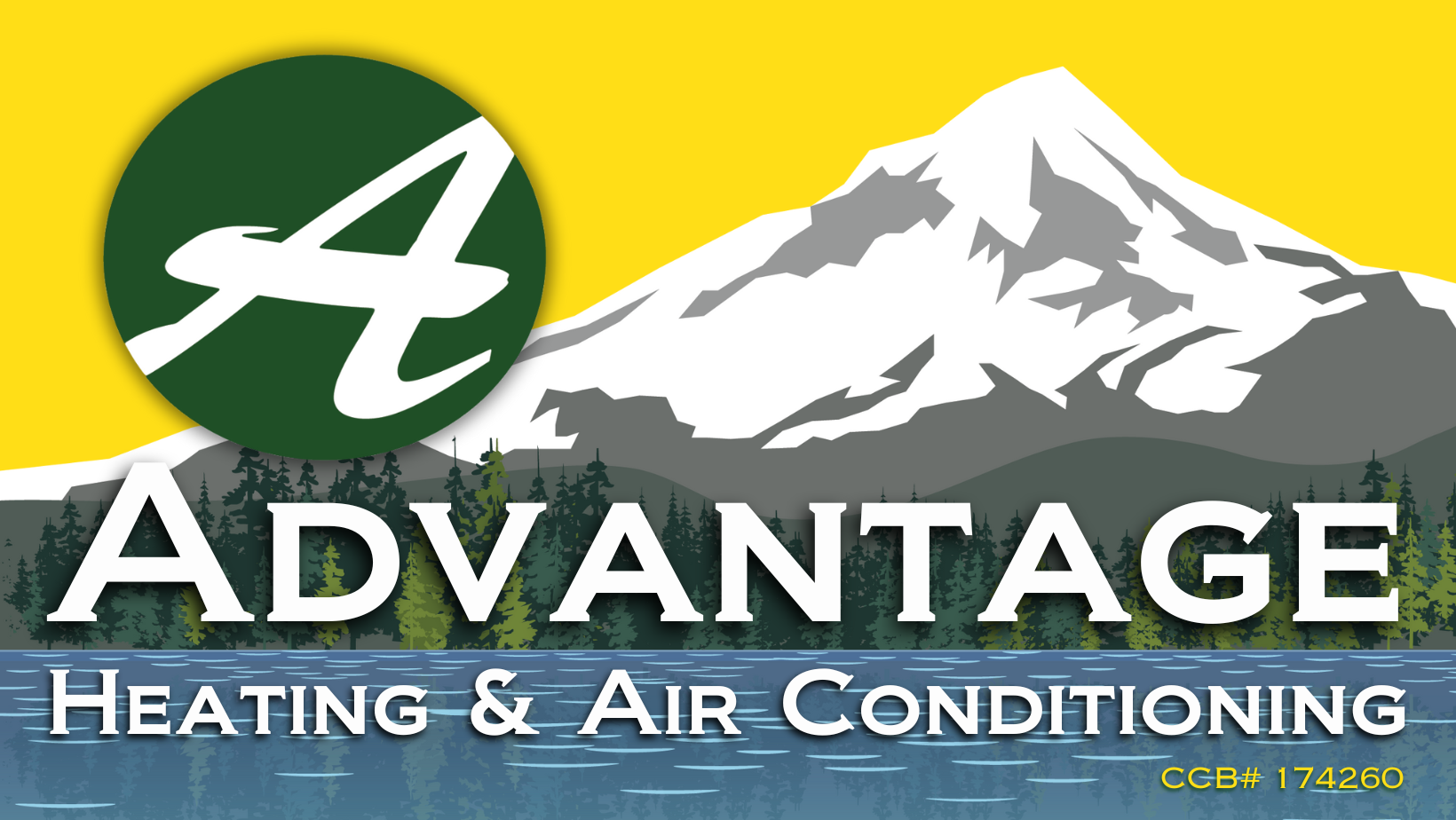What Size Furnace Do I Need?
Your furnace is the heart of your HVAC system. It pumps all the air from the intake, through the ducts, and into your home. Your furnace is also responsible for providing heat to your home. It’s pretty important to make sure you have the right one. So how do you know what size of furnace you need?
The honest answer is – it’s impossible to know for sure until an HVAC professional can inspect your home.
In this post, we’ll do our best to help you get an idea of what you need. We’ll go over a quick and easy way to get a baseline and then some additional considerations. That should help you get an approximation. With all that in mind, you can make an informed decision when shopping for a new furnace.
How Are Furnace’s Classified?
First, you need to know how furnace sizes are measured to know what size of furnace you need. Furnaces don’t come in the traditional small, medium, and large.
BTUs
The first term that you will need to familiarize yourself with is BTUs.
A BTU is a British Thermal Unit. Furnaces are rated by their output in BTUs. A 60,000 BTU furnace will put out more heat than a 40,000 BTU furnace.
A BTU is defined as the amount of heat required to raise the temperature of one pound of water by one degree. You don’t need to memorize that, though. Just a bit of bar trivia for you.
Typically, residential furnaces range between 40,000 and 120,000 BTUs.
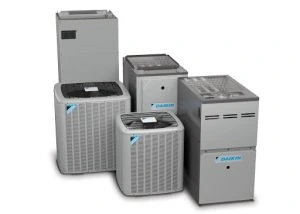
Efficiency
Furnaces also have a rating based on their Average Fuel Utilization Efficiency (AFUE), or efficiency. Their efficiency rating should be on a prominent label per the Department of Energy.
Efficiency is graded as a percentage out of 100. Furnaces that use less energy to produce heat have a score closer to 100%. Most modern furnaces start at 80% and go to around 97%.
Home Size Determines Furnace Size
The size of your home is the biggest determining factor in what size of furnace you need. Your furnace has to be big enough to provide heat to all of your home. That’s why the square footage of your home is the number you need to know to get the baseline for the size of furnace you need.
It’s recommended that a furnace has 30 to 60 BTUs per square foot. The actual number depends on the climate which we will get into in the next section.

But, just for example, if you have a 1500-square-foot home and live in a warm climate, you will multiply 1500 by 30. You would need to look for furnaces around 45,000 BTUs to start. So why do some homes with similar square footage have 90,000 BTU units?
What Else Affects Heating
There are a lot of other factors that need to be considered when shopping for a furnace. Each one will affect how many BTUs you need.
Climate
The first and most impactful of these other factors is the climate you live in. There are 5 climate zones in the United States. You can find out which zone you live in by checking this map. Each one has a different recommended number of BTUs per square foot. Zone 1 is the hottest climate and zone 5 is the coolest.
Per zone, these are the number of recommended BTUs per square foot.
- Zone 1 – 30 to 35 BTUs
- Zone 2 – 35 to 40 BTUs
- Zone 3 – 40 to 45 BTUs
- Zone 4 – 45 to 50 BTUs
- Zone 5 – 50 to 60 BTUs
Oregon has regions that fall under zones 3, 4, and 5. That means that even within the same state, you will need a larger or smaller furnace based just on the local climate.
Insulation
Another factor to consider is insulation. A furnace pumps heat into your home. Insulation keeps that heat trapped in there. Naturally, the two work together.
Things to think about:
- How old is your home?
- What was the standard for insulation when your home was built?
- Are there rooms in your home that are not insulated?
- Have you had any events that could damage your insulation (such as water damage)?
Bring these subjects up with an HVAC professional. They will tell you how much that will affect the heating in your home and also give them a better idea of how to meet your needs.
Windows and Home Facing
Your home will naturally be warmer if it gets more sun exposure. The number of windows you have and which direction they are facing will affect how much ambient heat is in your home. If you have more windows facing South, your house will be warmer than another house facing North or with fewer windows.
To see how this affects the amount of heating required for your home. You will need to perform a load calculation. More on that later.
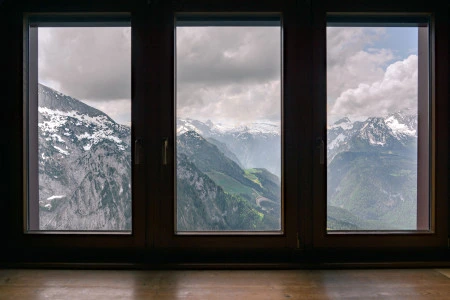
Efficiency
Another item that needs to be considered is the efficiency of your furnace. While this may not have a direct impact on the heating it provides, it will impact how much energy it uses. A furnace with a higher efficiency rating will heat your home using less energy.
You will probably want to keep a furnace’s efficiency rating in mind if your home requires a substantial amount of heating. An efficient furnace that is installed properly can save you a lot of money on your energy bill.
Layout
The layout of your home will also affect how well your furnace can heat it. Think about whether your home has an open design or if there are a lot of small rooms or corners that can trap heat. If there are open connections between each of the rooms, that will help keep heating even throughout your home.
An HVAC professional will also consider this before they make a recommendation.
What Happens When a Furnace is the Wrong Size?
Now we know what needs to be considered when finding the right furnace size for you. Let’s talk about why having the right size of furnace is important.
If you notice that some of these issues are true of your current furnace, talk to an HVAC sales professional about getting a furnace of a different size.
Too Small
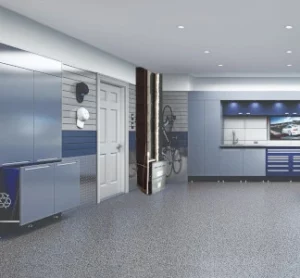
If your furnace is too small, it will struggle to heat your home. These are some issues you might encounter.
- It runs for long cycles.
- The heating throughout your home is uneven.
- The energy bill is larger than it needs to be.
- Furnace breaks down more often or parts don’t last their full lifetime.
Too Big
If your furnace is too big, it will run inefficiently and will short cycle (run in quick, short bursts). This can cause a whole slew of problems. Below are some symptoms and what that will look like.
- It will make your home hotter than desired in some rooms.
- The furnace only turns on for a very short amount of time.
- The furnace will have a noticeably shorter lifespan.
- The furnace will use more energy because of the constant switching off and on.
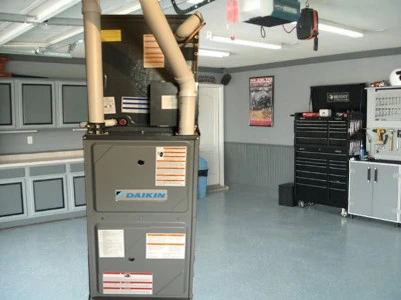
How to Find the Size of Furnace You Need
We just told you all the things you need to consider finding the correct size for a new furnace. Now let’s put that all together and tell you how to find the size of furnace you need.
Load Calculation
To calculate the number of BTUs your home requires, you will need to have a Manual J or Block Load Calculation performed. These are ways of putting all those variables into a formula to get a definitive answer on the size of furnace you need.
An HVAC sales professional will perform this calculation with you. If you’re not shopping yet and are trying to figure out if your furnace is over or undersized, you can contact your local utility company and see if they provide Manual J calculations.
There are also several formulas and apps available online if you wanted to try the calculation yourself. While we can’t guarantee those will be accurate, it can be a good starting place.
Who Are Advantage Heating and Air Conditioning, LLC?
We are your local HVAC Experts out of Salem, Oregon. We hope that this post gave you the information you need to know about finding the right size furnace for you. If you have other questions about HVAC systems, check out our other blogs. To learn more about who we are and how we can help you, visit our website and follow us on social media – we’re here when you need us!

